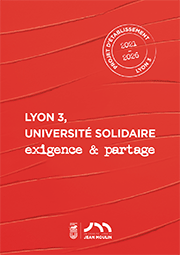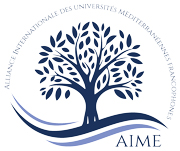AccueilRechercheProgrammes et productions scientifiquesThèsesThèses soutenuesThèses soutenues - 2006-2021Thèses soutenues - 2019
-
Partager cette page
- Recherche,
FRAYSSE Elise
L’État dans la construction doctrinale du droit administratif
Publié le 1 octobre 2019 – Mis à jour le 1 octobre 2019
Thèse en Droit, soutenue le 26 septembre 2019.
S’intéresser à l’État dans la construction doctrinale du droit administratif suppose de se pencher sur les rapports qu’ont entretenus les administrativistes avec l’État depuis la naissance de leur discipline, au début du XIXe siècle. La période s’étendant de 1804 à 1870 révèle à quel point les administrativistes de cette époque sont porteurs d’une pensée d’État : grâce au droit administratif, ils parviennent à légitimer tant le modèle étatique que le pouvoir en place. Ils justifient l’État tel qu’il existe alors, à savoir un État administratif et instituteur du social, peu soucieux des libertés. Leur étatisme-libéral, qui consiste à défendre les intérêts de l’État avant ceux des individus, œuvre en ce sens. Cela change toutefois à la fin du XIXe siècle avec l’avènement de la IIIe République, qui souffle un nouveau vent libéral dans la doctrine. Celle-ci s’attache alors, de 1870 à 1930, à penser l’État de façon théorique voire, pour certains auteurs, à ériger une véritable théorie de l’État. Pour autant, il ne faut pas s’y tromper : les administrativistes du XXe siècle ne rompent pas totalement avec ceux du siècle passé. Si leur pensée d’État a bien disparu, leur discours n’est toutefois pas dépourvu d’une forme de légitimation du modèle étatique. Ils restent en cela porteurs d’un certain libéral-étatisme, c’est à dire d’un libéralisme non pas contre l’État, mais par l’État.
To examine the role of the State in the doctrinal construction of administrative law, it is necessary to look into the relations between the administrative law scholars and the State since their discipline's birth, at the beginning of the 19th century. The period stretching from 1804 to 1870 shows how strongly this era's administrative scholars carry an idea of the State: through administrative law, they manage to legitimise the model of the State as well as the ruling power. They justify the State as it exists then, namely an administrative State hardly concerned about personal liberties. Their Liberal Statism, which consists of defending the interests of the State before the individuals' ones, works in this direction. This however changes at the end of the 19th century with the 3rd Republic, which breathes a fresh wind of liberalism into the doctrine. From 1870 to 1930, this doctrine then endeavours to think theoretically of the State and even, for some authors, to erect a true theory of the State. That said, the 20st century administrative law scholars do not totally break with those of the century before. If their thinking of the State has truly gone, their thought is not without a form of legitimisation of the model of the State. They keep on carrying on a certain form of Statist Liberalism, i. e. a form of liberalism which is not against the State, but by the State.
Mots-clés : droit administratif ; doctrine ; théorie de l’État ; libéralisme ; histoire de la pensée juridique.
Keywords : Administrative law ; State ; liberalism ; history of legal thought.
Directeur(trice) de thèse : David MONGOIN
Membres du jury :
- M. David MONGOIN, Directeur de thèse, Professeur des universités, Université Jean Moulin Lyon 3,
- Mme Anne-Laure GIRARD, Professeure des universités, Université de Poitiers,
- M. Benoît PLESSIX, Professeur des universités, Université Panthéon Assas Paris II,
- M. Olivier BEAUD, Professeur des universités, Université Panthéon Assas Paris II,
- Mme Sylvie CAUDAL, Professeure des universités émérite, Université Jean Moulin Lyon 3.
Président(e) du jury : Olivier BEAUD
Documentation
Mise à jour : 1 octobre 2019







